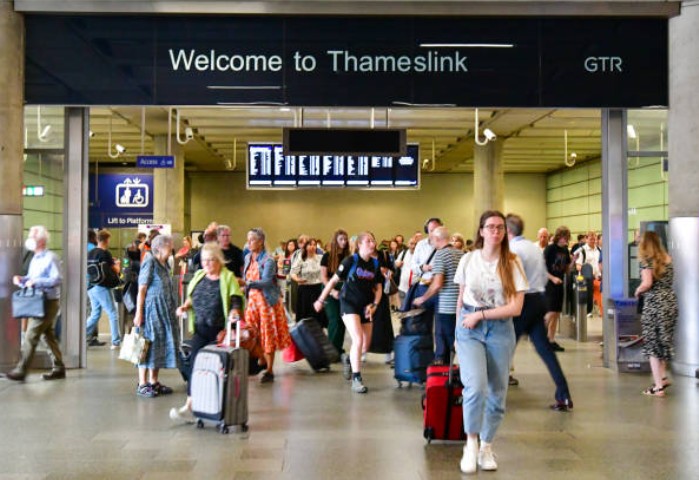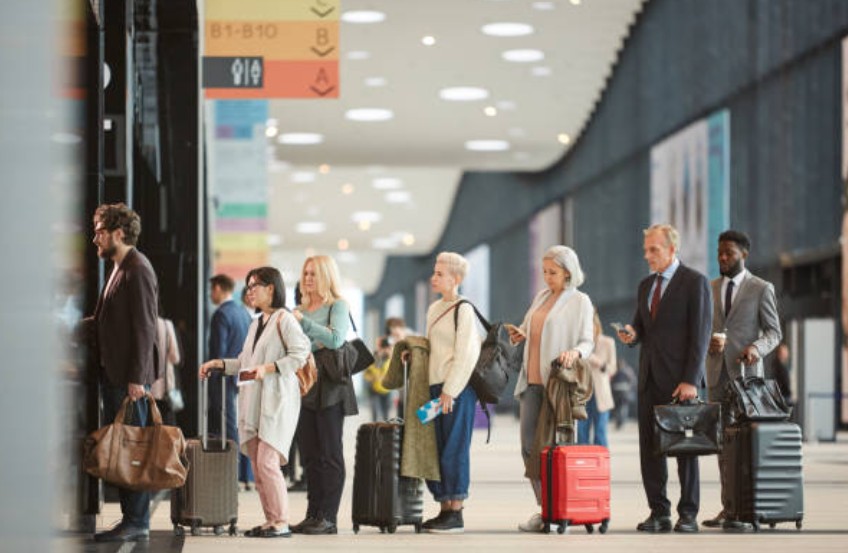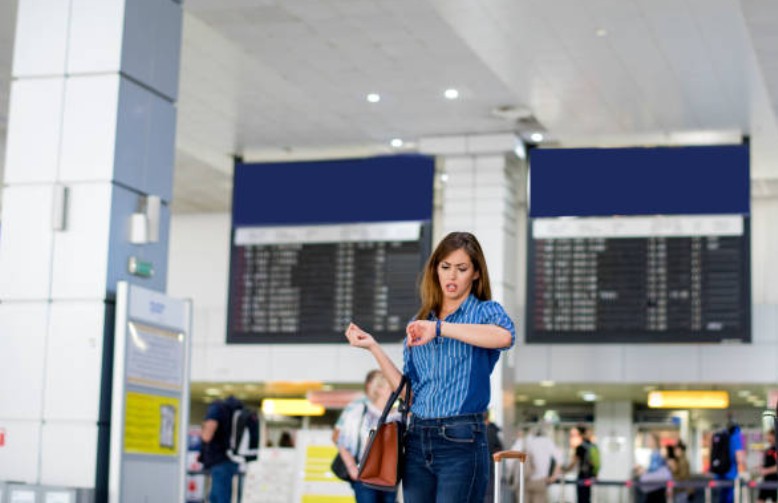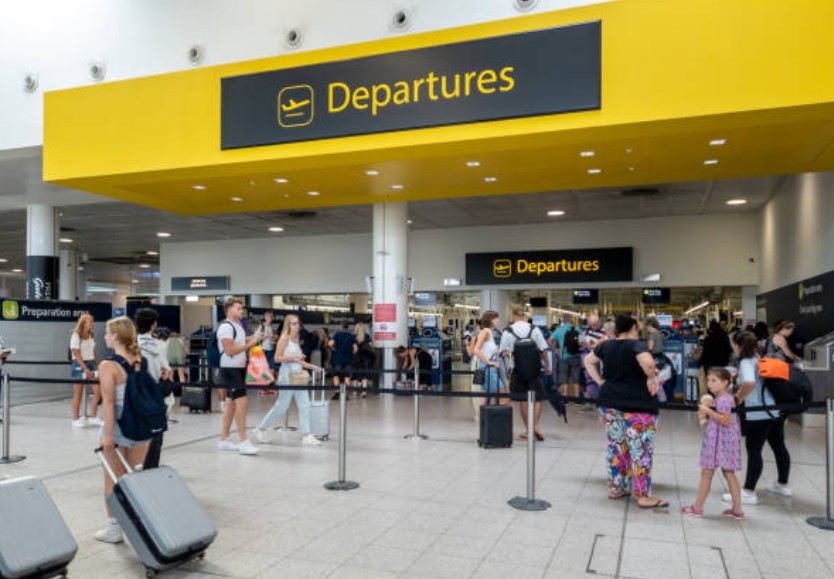Whether you’re a frequent flyer or a first-time traveller, one question always creeps up before a journey: how long before a flight should I be at the airport UK? The answer isn’t one-size-fits-all. It depends on the type of flight, the airport, the time of day, and even your airline.
In this blog, we’ll walk you through everything you need to know – from when to arrive to what affects your airport timing in the UK. This isn’t just another general travel tip post. It’s a complete guide that covers it all – and it’s written with UK travellers in mind.
Why Is Knowing Your Airport Arrival Time So Important in the UK?
Understanding UK-Specific Travel Requirements and Delays

Travelling from UK airports, particularly major ones like Heathrow, Gatwick, or Manchester, often comes with extra layers of complexity. Since the UK officially left the EU and navigated a post-pandemic recovery, airport operations have changed in several ways. These changes make early arrival not just helpful but sometimes critical.
Factors that influence the need to arrive early include:
- Longer immigration and security checks
- Higher traffic during school holidays and summer months
- Staff shortages are causing slow processing
- Increased time needed to travel between terminals
Unlike smaller regional airports, larger ones have multiple terminals, extensive duty-free areas, and more complex layouts. That alone adds extra time from the entrance to the boarding gate.
How Long Before a Flight Should I Be at the Airport UK?
Domestic, Short-Haul, and Long-Haul: What’s the Right Time for Each?
The question “How long before a flight should I be at the airport UK?” There’s no one-size-fits-all answer—it varies based on your destination, the airline you’re flying with, and whether you have checked luggage. Below is a breakdown for UK flights:
| Flight Type | Recommended Arrival Time | Bag Drop & Check-In Open | Boarding Gate Closes |
| Domestic (UK to UK) | 1.5 to 2 hours before | 2 hours before | 30 minutes before the flight |
| European Short-Haul | 2 to 3 hours before | 3 hours before | 40 minutes before the flight |
| International Long-Haul | 3 to 4 hours before | 4 hours before | 60 minutes before the flight |
Keep in mind: some budget airlines are stricter about deadlines. For example, Ryanair closes check-in strictly 40 minutes before departure, regardless of delays.
What Delays Can Happen at UK Airports?
Common Situations That Eat Up Time
UK airports often look calm on the outside but can be chaotic inside, especially during early morning or evening departures. Here’s what could slow you down, even if you arrive early:
- Security lines exceeding 45 minutes during peak hours
- Passengers are being pulled aside for random screening
- Long queues at self-check-in machines
- Delays due to unlabelled or oversized hand luggage
- Last-minute gate changes requiring long walks across terminals
- Public transport delays en route to the airport
Real-world tip: Travellers who arrive 90 minutes early for a short-haul flight during peak hours are often the ones running to the gate. Build in time for the unexpected.
Does Online Check-In Change the Need to Arrive Early?

The Myth of Skipping the Queue
Online check-in can indeed save you time, especially if you’re travelling light. But it doesn’t eliminate the need to show up early at the airport. Here’s a quick look at when online check-in helps — and when it doesn’t:
When online check-in saves time:
- You’re travelling with only cabin baggage
- You have a mobile or printed boarding pass
- You’re familiar with the airport layout
When online check-in won’t help much:
- You need to check in your luggage
- You’re travelling with children or in a group
- Airport staff need to verify your documents, visas, and Passport ID
In many cases, airlines like British Airways, easyJet, or Jet2 still recommend that passengers who check in online arrive at least two hours before short-haul flights.
Do Different UK Airports Require Different Arrival Times?
Comparing Regional Airports vs Major Hubs
Airports vary, and so should your schedule. Here’s a comparison of the most popular UK airports and how much time you should allocate before flying:
| Airport | Known For | Suggested Arrival Time |
| Heathrow (LHR) | Busy, multiple terminals, global hub | 3 to 4 hours |
| Gatwick (LGW) | Short-haul & EU flights | 2 to 3 hours |
| Manchester (MAN) | Busy Northern UK hub | 3 hours |
| Birmingham (BHX) | Less crowded than London airports | 2 hours |
| Edinburgh (EDI) | Regional & EU flights | 2 hours |
| Bristol (BRS) | Quicker processing, compact layout | 90 minutes to 2 hours |
Even in smaller airports, delays can still occur due to staffing, IT glitches, or seasonal crowds.
What About Flights During Peak Seasons or Holidays?
Timing Advice for Christmas, Summer, and School Breaks
During UK peak travel times — like Christmas, Easter holiday, bank holidays, and school breaks — queues can double. That’s especially true if you’re flying:
- With children
- On budget airlines
- From busy terminals like Gatwick South or Heathrow Terminal 5
During these periods, aim to arrive 30 to 60 minutes earlier than the general recommendation.
What’s the Risk of Arriving Too Late?

Missing the Window Isn’t Just Inconvenient – It’s Expensive
Most UK airlines have strict policies around late arrivals. Here’s what can happen if you arrive past the check-in or bag drop deadline:
- You’ll be denied boarding
- You may be required to pay a “missed flight charge” or purchase a replacement ticket.
- You could lose pre-booked luggage fees or seat reservations
- Your travel insurance may not cover missed flights caused by late arrival
It’s also worth noting that gate closing times are final – staff won’t allow you to board even if you’re seconds late.
What Should You Do Before Leaving for the Airport?
Here’s a quick pre-departure checklist to ensure a smooth journey:
- Check in online if available
- Verify your flight time and terminal
- Pack your bags according to hand luggage rules
- Confirm transport to the airport (allow extra time for traffic or delays)
- Bring a valid ID/passport and visa (if needed)
- Download or print your boarding pass
Final Thoughts: Better Early Than Rushing Through Security
Now that we’ve answered how long before a flight should I be at the airport UK, the key takeaway is to plan and allow a generous buffer.
Rushing through security or running to the gate adds unnecessary stress. Whether you’re flying from a busy London airport or a quiet regional hub, arriving too early is far better than arriving too late. With flight schedules constantly changing, it’s wise to check your airline’s rules and guidance the night before and give yourself the best chance of a smooth journey.
FAQs: All Your Questions Answered
Is 1 hour enough for a domestic flight in the UK?
Only if you’re travelling with hand luggage, have checked in online, and it’s a quiet time of day. Otherwise, aim for 90 minutes minimum.
What happens if I arrive too early?
You may not be allowed to check in or drop off bags until the counter opens (typically 2–4 hours before departure). You’ll be stuck waiting outside the check-in zones.
Can I rely on real-time travel apps for timing?
Apps like Google Maps, Citymapper, or the National Rail app help with route planning, but always add buffer time for transport delays or airport processing.






